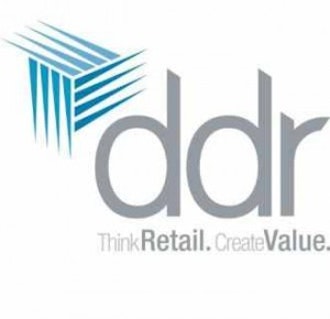
Making the atmosphere even more attractive for nimble investors is the fact that trading volumes and market liquidity are up substantially as large institutions react to news that the Federal Reserve is likely to begin tapering its quantitative easing program at the September FOMC meeting. It would seem that the market is in the midst of a major shift, particularly on the interest rate front. As the Fed prepares to exit the Treasury market by the middle of next year, the long-term cycle of lower interest rates is coming to an end.
Rising rates could trigger further sell-off in REITs
As this potentially seismic market shift unfolds, investors should consider looking for short opportunities in the REIT sector, which has historically moved inversely to interest rates. Over the last month alone, both the SPDR Dow Jones REIT ETF and Vanguard REIT ETF are down around 12%. Among the individual names that investors are betting against are DDR Corp (NYSE:DDR), EPR Properties (NYSE:EPR), Digital Realty Trust, Inc. (NYSE:DLR) and National Retail Properties, Inc. (NYSE:NNN).
All of these REITs currently have short interests above 10% and are in steep near-term downtrends. The potential for more panic selling in these names is high as downside momentum in the bond market continues to accelerate, pushing interest rates upward. Higher rates increase the cost of financing for Real Estate Investment Trusts, which pay out most of their earnings as dividends. As a result, the largest cash cost for most REITs is interest expense. Also, rising rates make fixed income investments more attractive relative to alternatives such as REITs — hence the recent heavy selling in the sector.
“This sector is going to woefully underperform in a rising rate environment,” Jonathan Pong, an analyst at Robert W. Baird & Co. in New York, said in a Bloomberg interview. “History proves that out.” Greg Guttenplan, a REIT analyst at CreditSights Inc., told Bloomberg that “relative value is gone” for the asset class. “There’s really not much more room to run for the REIT sector,” he added.
Operational metrics remain weak at DDR
Among the least favored names is DDR Corp (NYSE:DDR), a $5 billion shopping center REIT. Despite the dire outlook for the sector, DDR Corp (NYSE:DDR) was still positive on the year as of Monday, June 24, having gained around 2%. Nevertheless, the shares had fallen almost 15% in the last month alone and more than 16% of its float had been sold short. Despite the recent losses, DDR is still yielding a relatively paltry 3.40%, suggesting that there is more room for downside. Consider, for example that the 10-Year Note is currently yielding 2.54% and the 30-Year Treasury Bond is yielding 3.56%.
This company was devastated in the wake of the financial crisis and DDR Corp (NYSE:DDR) has never fully recovered. In 2007, the shares traded above $60, which compares to a current price in the mid-teens. Although the REIT has only missed one dividend payment over the last 5 years, its payout has fallen substantially from pre-crash levels. In 2008, the REIT’s quarterly dividend payment was $0.69 versus $0.14 in the most recent quarter.
Investors should also be very concerned about DDR Corp (NYSE:DDR)’s lack of profitability. The company has posted net losses for five consecutive fiscal years. While revenue has risen for the last three years, the gains have been very modest. On a positive note, analysts are estimating that funds from operations (FFO) will be positive in both fiscal 2013 and 2014, but it remains unclear if DDR Corp (NYSE:DDR) will be able to successfully navigate a rising interest rate landscape given its historical operational weakness.
Cyclical exposure could weigh on Entertainment Properties
Another name that is in plunge-mode is Entertainment Properties Trust. Investors piled into this REIT for much of 2013, but now they cannot get out fast enough. A little more than a month ago Entertainment Properties was trading above $60.00 as yield hungry investors snapped up shares. While EPR Properties (NYSE:EPR) was still up around 3% on the year, it has lost roughly 16% over the last month, pushing its yield well over 6%. Investors continue to bet against the company, with around 11% of its float sold short. Earlier this month, analysts at KeyBanc downgraded EPR Properties (NYSE:EPR) from Hold to Underweight.
Unlike DDR, Entertainment Properties Trust’s operational metrics are relatively healthy, although one concern may be that net margins have been flat to down over the last several years. For fiscal 2013, FFO is expected to grow around 11% on a roughly 14% increase in revenue. Analysts anticipate that this will be followed by a better than 5% gain in FFO in fiscal 2014 along with a 11.40% bump in revenue.
In addition to the headwinds created by rising interest rates, Entertainment Properties may be vulnerable to a downturn in the economy. The majority of the REIT’s properties (around 76%) consist of mega-plex theatres and entertainment recreation centers. As a result, EPR Properties (NYSE:EPR)’s tenants are exposed to cyclical changes in the economy and consumer spending patterns. In a recession, these tenants could experience financial difficulties which would in turn weigh on EPR Properties (NYSE:EPR)’s business.
Hedge fund says short Digital Realty
Digital Realty Trust, Inc. (NYSE:DLR) is one of the most heavily shorted names in the sector, with around 21% of its float sold short. Investors have been doing very well betting against Digital Realty Trust, Inc. (NYSE:DLR), which has lost almost 15% so far in 2013. The REIT is focused on data centers. As such, DLR is exposed to capital expenditure trends in the technology industry as well as interest rate risk.
In early May, hedge fund analyst Jonathon Jacobson of Highfields Capital Management outlined a short thesis on the name at the Ira Sohn Conference. He argued that Digital Realty Trust, Inc. (NYSE:DLR) is worth around $20 per share (implying roughly 65% downside from current levels) and that the company is paying dividends using debt issuances instead of free cash flow.
Jacobson also noted that data center rents have fallen around 20% since 2006 and the storage market faces stiff competition from cloud computing companies like Google, Amazon.com and Microsoft. These trends can be seen in analysts’ estimates for Digital Realty Trust, Inc. (NYSE:DLR). Over the last 5 years, the REIT has grown earnings by around 44% per year, but for the next 5 years, growth is only expected to be around 9% per annum.
When looking through the rear-view mirror, Digital Realty Trust, Inc. (NYSE:DLR) still looks attractive. The stock yields over 5% and both annual revenue and FFO have shown consistent growth over the last 5 years. On a quarterly basis, however, net income has been down for the last three reporting periods and margins are also falling.
Rich Vvluation for National Retail
National Retail Properties, Inc. (NYSE:NNN) is another REIT that may be in trouble based on short interest and trading trends. Despite being up around 3% in 2013, National Retail has lost roughly 17% over the last month amid panic selling. The company focuses on long-term net leases, which makes it especially vulnerable to rising interest rates. Investors are betting that the REIT’s current yield of just under 5% is still too low to attract new capital as the risk-free rate rises.
The company has historically been a standout in the sector. National Retail Properties owns 1,636 free-standing restaurants, shops and other buildings and has raised its annual dividend for 23 consecutive years. Nevertheless, its short interest of over 10% suggests that investors expect the share price to continue to fall.
Despite the losses in the name, National Retail Properties, Inc. (NYSE:NNN) continues to trade at a rich valuation which may be hard to justify if rates keep rising. Currently, NNN is trading at more than 18 times this year’s FFO estimates. Given that analysts are only modeling bottom-line growth of 2.90% per year for the next 5 years, the REIT would appear to be overvalued despite the company’s strong track record.
Bottom line
There are significant signs that the bond market has reached an inflection point and that interest rates will continue to rise. If the long-term cycle of lower rates is indeed over, the magnitude of this shift could be enormous. Investors looking to make a directional bet on higher rates, or to hedge against continued market volatility, should consider scanning the REIT sector for high probability short opportunities.
Although many of these securities have already recorded steep losses in recent weeks, history suggests that this trade is still in the early innings. Years and years of Federal Reserve bond-buying has driven Treasury yields to irrational levels. As this bubble continues to burst, investors should prepare for more carnage in the REIT sector.
The article Trading the Rise in Interest Rates; More Pain Ahead for REITs originally appeared on Fool.com and is written by Ryan Glosier.
Ryan Glosier has no position in any stocks mentioned. The Motley Fool has no position in any of the stocks mentioned. Ryan is a member of The Motley Fool Blog Network — entries represent the personal opinion of the blogger and are not formally edited.
Copyright © 1995 – 2013 The Motley Fool, LLC. All rights reserved. The Motley Fool has a disclosure policy.





